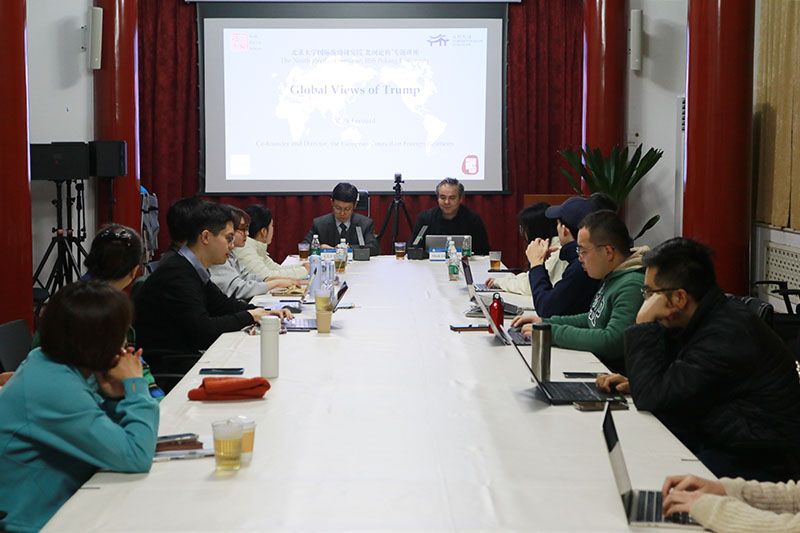On the afternoon of October 22, 2025, the Institute of International and Strategic Studies (IISS), Peking University (PKU) successfully held the 91st session of its North Pavilion Seminar lecture series, titled “Global View of Trump”. The lecture was delivered by Mark Leonard, Co-Founder and Director of the European Council on Foreign Relations (ECFR), and chaired by Associate Professor Gui Yongtao, Vice President of IISS, PKU.

Mr. Leonard opened his lecture with an analysis of the revolutionary influence Trump, as a transformative political leader, has exerted on both U.S. domestic and international politics. First, Trump reshaped traditional Republican politics, sparking internal criticism of the policies of the George W. Bush era and the Republican establishment. Second, he sought to forge a new national culture and American identity through his immigration and economic policies. Finally, in the realm of foreign policy, there has been a more pronounced reflection on wars waged to uphold the liberal international order.
Mr. Leonard then presented global perspectives on Trump based on public opinion survey data. Attitudes toward Trump’s potential re-election are sharply polarized between U.S. allies and non-allied countries. Overall, non-allied nations tend to view Trump’s potential impact on both the United States and the world in a more positive light, while traditional allies — especially in Europe — hold predominantly negative views of Trump´s possible influence. Regarding whether Trump could serve as a “peace broker” in the Ukraine conflict, respondents expressing favorable views were mainly concentrated in India, Saudi Arabia, Russia, South Africa, China, and within the United States itself.
Regarding the transformation of the international landscape, Mr. Leonard argued — based on survey results — that many countries view Trump’s election as signaling a shift in the United States from being the leader of the liberal international order to becoming a “normal nation.” He further noted that this transformation is taking place not only in U.S. foreign policy, but also in the economic, security, and identity policies of many other countries.
During the Q&A session, Mr. Leonard engaged in an in-depth discussion with the faculty and students on topics such as U.S. political trends, U.K.–U.S. relations, immigration issues, American national identity, and public opinion research methods. (Contributed by: Qin Jiaru)
Editor: Li Fangqi Photographer: Zheng Huaizhou

